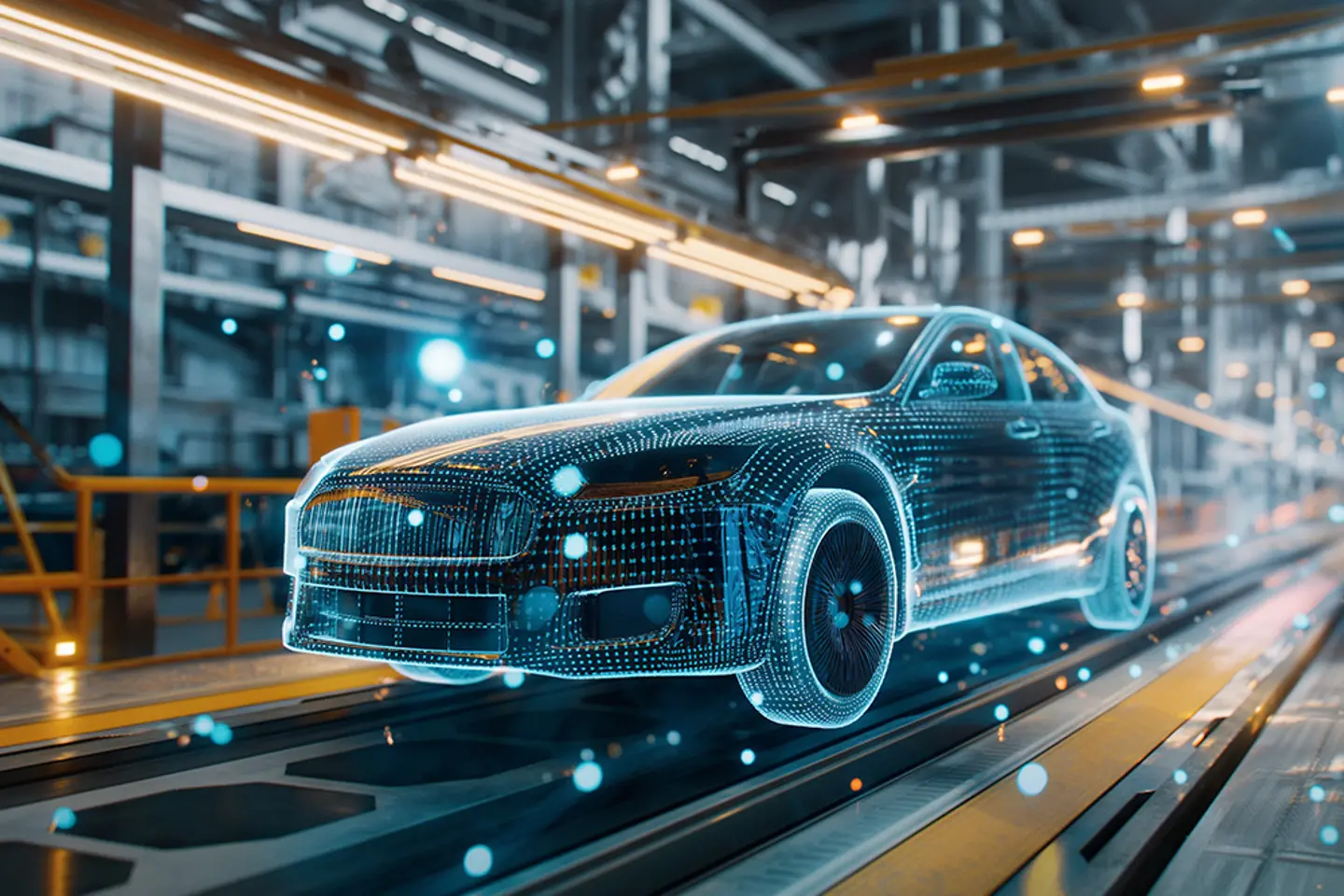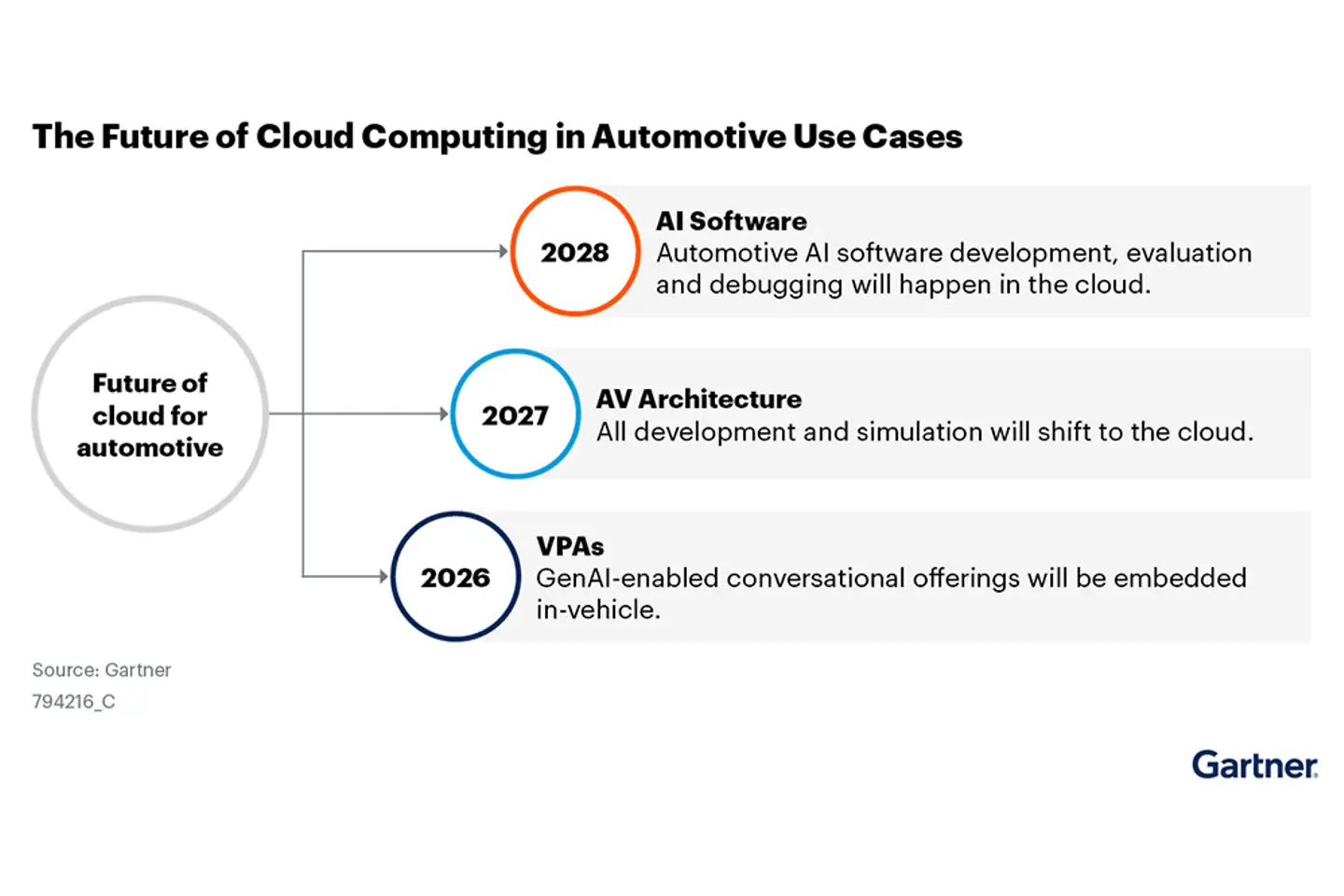
The massive data consumption in the automotive industry has opened the gates for serious cloud adoption. The new trends in the industry demand for an increased use of cloud technology to support the advanced use cases and applications.
By adopting cloud-based technologies, automotive OEMs can enhance the driving experience, improving vehicle safety and facilitating more efficient and sustainable transportation systems.
You can display all external content on the website at this point.
I agree that personal data may be transmitted to third-party platforms. Read more about this in our privacy policy.
Connected cars or software-defined vehicles are a trending topic in the automotive industry. In this context, the role of cloud becomes vital to delivering a flawless connected experience via over the air (OTA) updates. In future, it’s expected that the industry’s focus will shift towards edge computing, which can help lower latency and enhance reliability.
The concept of digital twin is also becoming equally popular as well as AI adoption is seeing an upward trend in the automotive industry. As per a Gartner® report, “by 2027, 30% of software-defined vehicles will feature a Digital Twin 2.0 of at least one vehicle system as opposed to less than 1% today. Gartner projections indicate that by 2030, the average automaker will use AI in 80% of its high-value processes, up from 20% today.”1
To know more about how T-Systems supports software-defined vehicles and connected cars, watch the video below.
Data spaces are the next big thing with the potential to ensure seamless data exchange in the automotive industry. Data spaces not only enable integration of data from diverse sources, but they also help optimize supply chains by providing data-driven insights. All this happens in a regulated environment that ensures stringent data compliance. And cloud technology is the foundation for data spaces.
Catena-X, a dedicated data space offering by T-Systems, caters to the automotive industry. Powered by the Data Intelligence Hub, Catena-X provides a protected landscape where automotive data can be exchanged without any worries.

Source: Gartner, Emerging Tech: The Future of Cloud Computing in Automotive, By Gaurav Gupta, 19 June 2024.
In a nutshell, cloud computing fosters seamless connectivity, data-driven insights, and efficient performance. Especially by leveraging private cloud or hybrid cloud platforms, automotive companies can support their migration and modernization needs, along with optimum resource utilization and regulatory compliance.
IDC research shows that 51% of automotive OEMs/suppliers consider AI-enabled quality inspection and analysis on the shop floor a key initiative of digital transformation.
IDC Analyst Brief sponsored by T-Systems2
Sustainability has assumed a great importance in the automotive industry. Electric vehicles (EVs) are already witnessing a significant push in the market. The objective clearly is to reduce the environmental impact and here cloud strategies can be greatly leveraged to ensure that automotive manufacturing companies meet their sustainability goals.
But what is the right cloud strategy for the automotive players? Is multi-cloud the solution or should private cloud be the choice?
We recently commissioned an IDC Analyst Brief, Accelerating Automotive Excellence with Secure, Agile, and Scalable Cloud Strategies2, which explores the potential of cloud technology for automotive industry. Take a look.
1 Gartner, Top Automotive Trends for 2024, By Pedro Pacheco, Mike Ramsey et. Al., 7 February 2024. GARTNER is a registered trademark and service mark of Gartner, Inc. and/or its affiliates in the U.S. and internationally and is used herein with permission. All rights reserved.
2 IDC Analyst Brief sponsored by T-Systems, Accelerating Automotive Excellence with Secure, Agile, and Scalable Cloud Strategies, doc #EUR152375824, July 2024